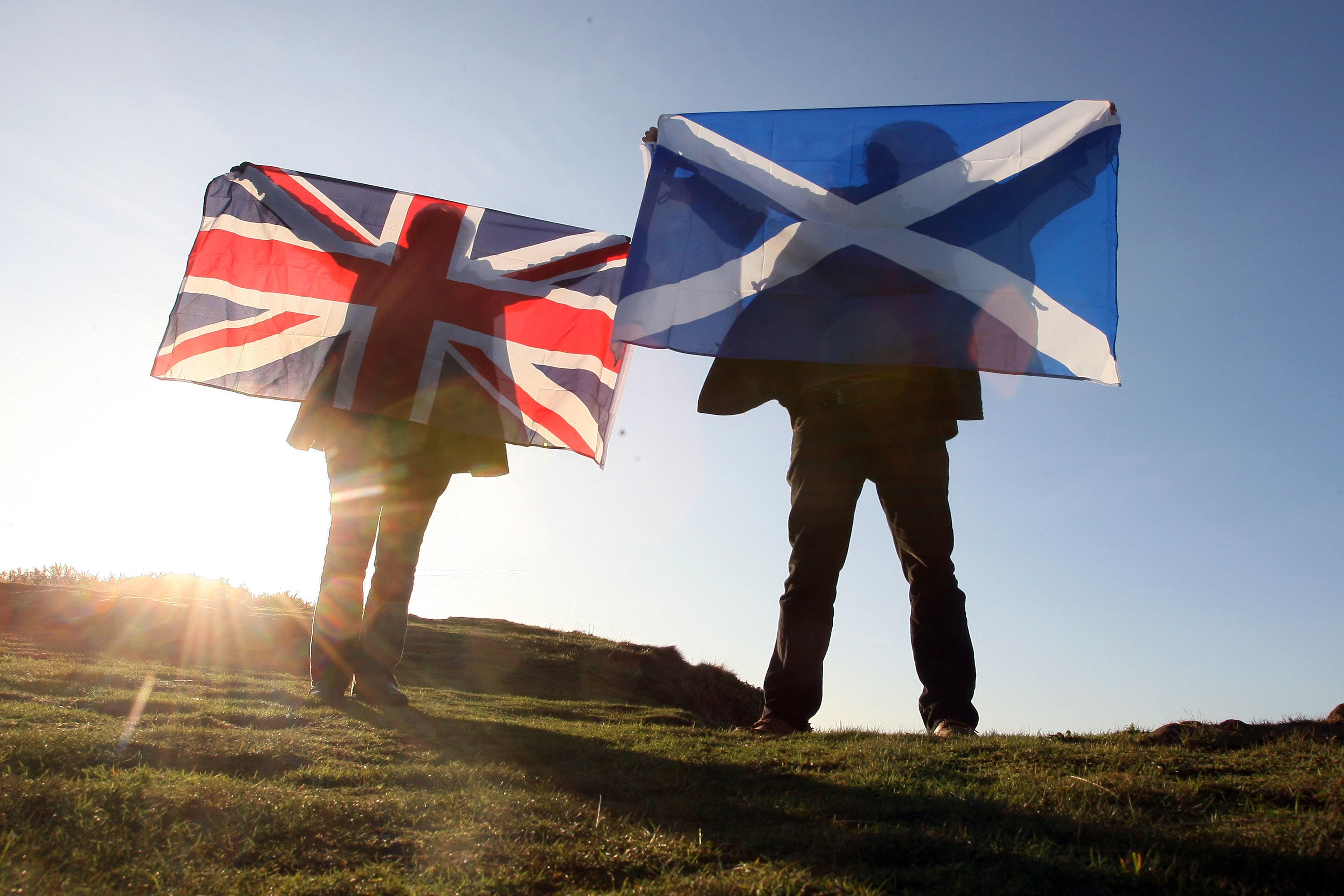Poll suggests 54% of Scots would vote No in independence referendum
In the first poll on Scottish voting intentions released in 2023, backing for a Yes vote was at 46% when ‘don’t knows’ are removed.

Your support helps us to tell the story
From reproductive rights to climate change to Big Tech, The Independent is on the ground when the story is developing. Whether it's investigating the financials of Elon Musk's pro-Trump PAC or producing our latest documentary, 'The A Word', which shines a light on the American women fighting for reproductive rights, we know how important it is to parse out the facts from the messaging.
At such a critical moment in US history, we need reporters on the ground. Your donation allows us to keep sending journalists to speak to both sides of the story.
The Independent is trusted by Americans across the entire political spectrum. And unlike many other quality news outlets, we choose not to lock Americans out of our reporting and analysis with paywalls. We believe quality journalism should be available to everyone, paid for by those who can afford it.
Your support makes all the difference.An opinion poll suggests 54% of Scots would vote No in an independence referendum.
In the first poll on Scottish voting intention released in 2023, backing for a Yes vote was at 46% when “don’t knows” are removed.
It comes after a number of polls towards the end of 2022 put Yes ahead of No on the independence question.
The latest poll was carried out by Survation for advisory company True North, with 1,002 Scots being surveyed between January 10 and January 12.
This took place before the UK Government used its Section 35 powers to block Holyrood’s gender recognition reform legislation, triggering a constitutional dispute.
For Westminster voting intention, the poll put the SNP on 43%, Labour on 29%, the Conservatives on 18% and the Lib Dems on 7%.
The poll also asked respondents how they would vote if the next Westminster election was a “de facto referendum on Scottish independence”.
Nicola Sturgeon has suggested using the next general election in this way.
Under this scenario, the SNP were on 45% of the vote, when undecideds and those who would refuse to vote are removed.
Polling expert Professor Sir John Curtice said the poll also showed pessimism about Scotland’s economic prospects.
He said: “Following on from polling conducted shortly before Christmas that pointed in the same direction, today’s poll suggests that the spike in support for independence registered after the Supreme Court judgement on indyref2 has proven to be temporary.
“At 46%, support for Yes in today’s poll is little different from the 47% figure Survation obtained when they previously addressed the issue last August.
“Meanwhile, the poll suggests that, at 43%, support for the SNP would be well below the 50% mark that Nicola Sturgeon would like to surpass at the next general election – though it also suggests that, at present, fewer than half would vote for pro-independence parties in a Holyrood ballot, too.”
He continued: “However, there is no evidence in the poll that fighting the next election as a de facto referendum would reduce the level of SNP support.
“Rather, slightly more voters (45%) say that they would vote for the SNP in that circumstance.
“In truth, if the SNP are going to win over 50% of the vote in either kind of election, the party will need first to persuade more people of the case for independence.”
Professor Curtice said most voters are assuming the cost of living crisis will grow worse.
He said: “In truth, voters are far from convinced that either the Scottish or the UK Government has the right policies to turn things around, though they are particularly sceptical about the policies emanating from Westminster.
“Not least of the reasons is that around seven in 10 Scots (71%) think that the cost of living crisis is going to get worse and they are far from convinced that that the windfall tax on energy companies has been effective in reducing their bills.”